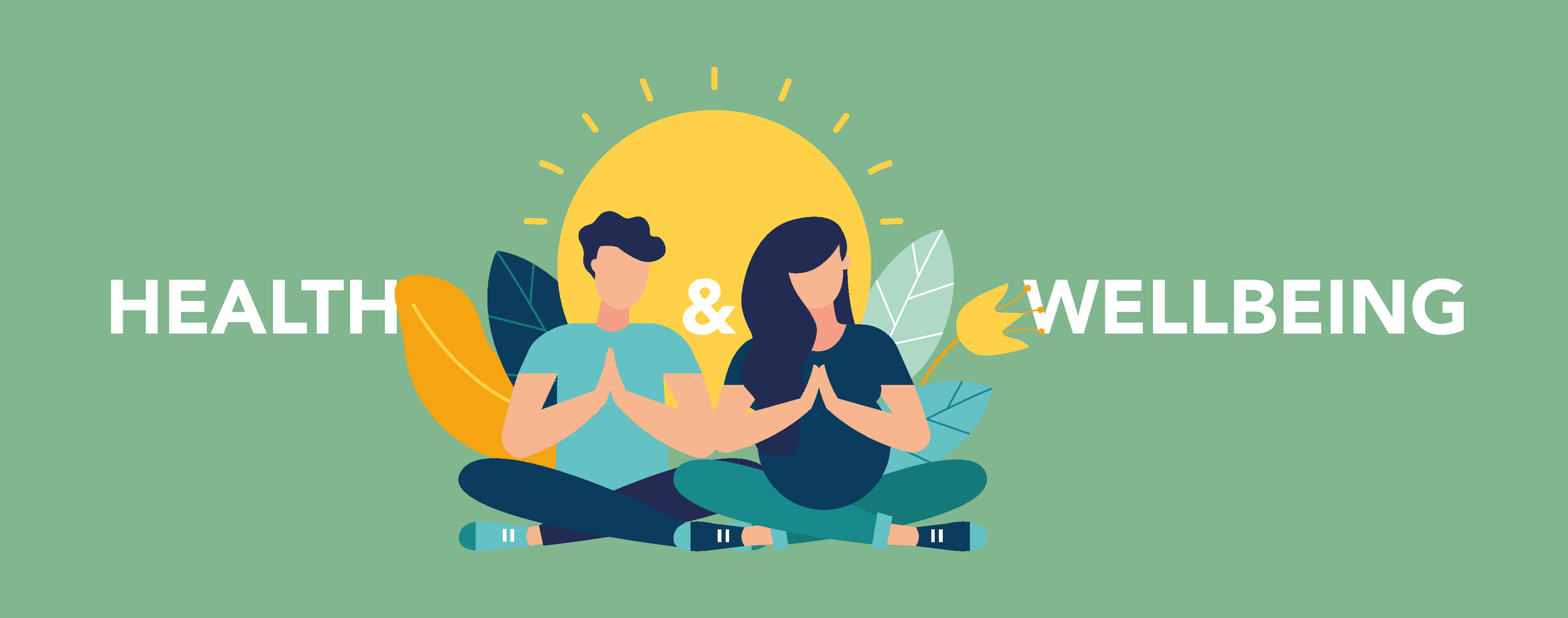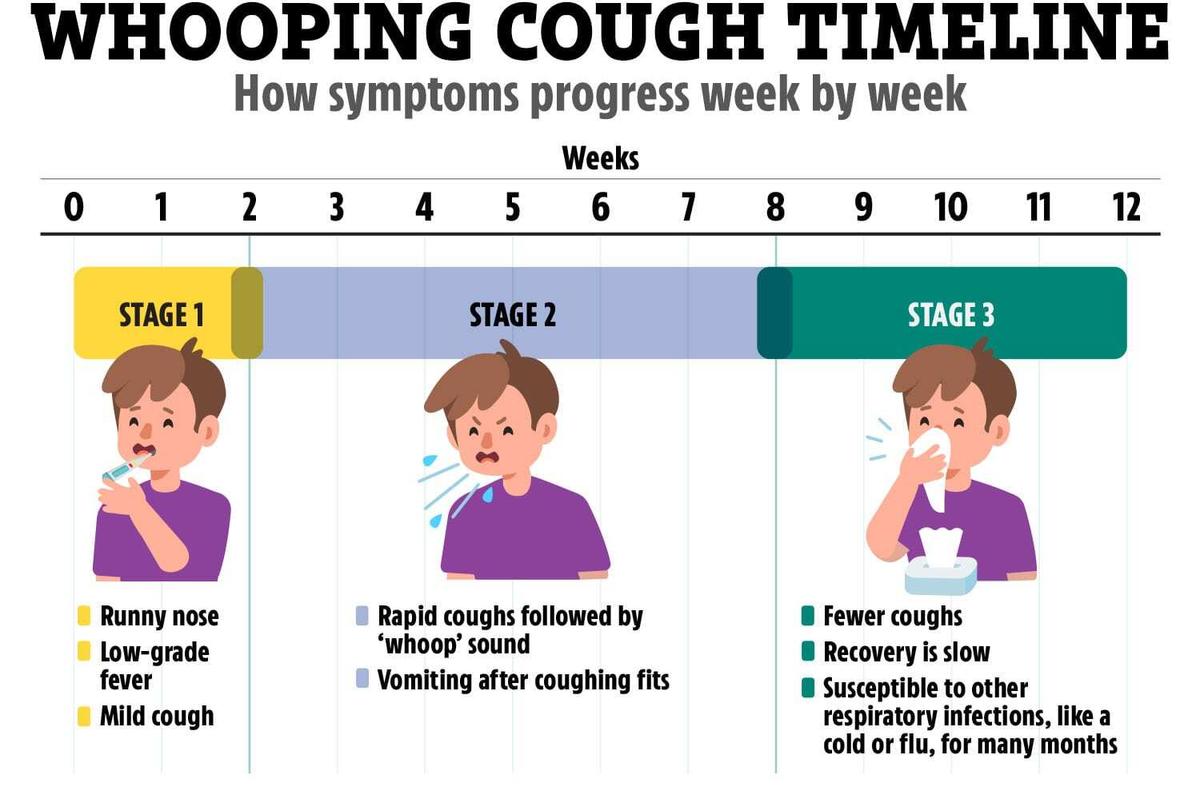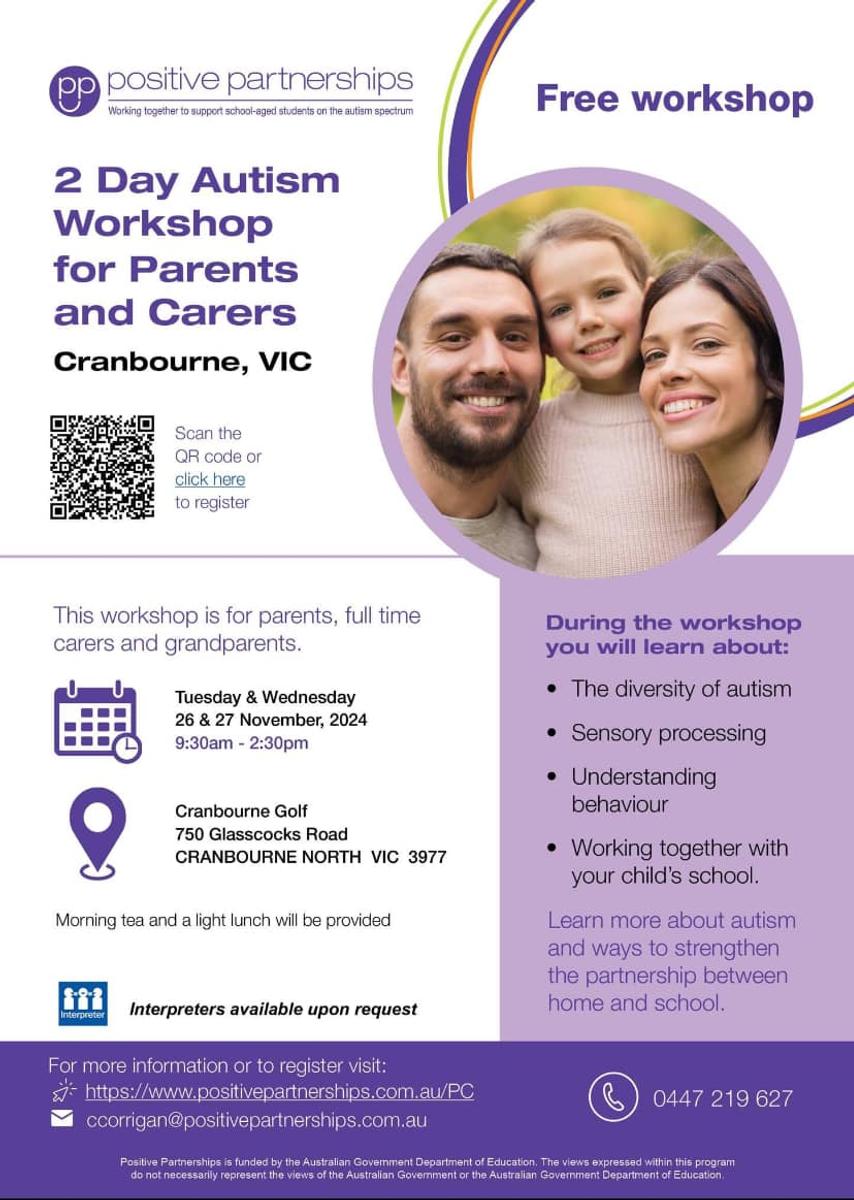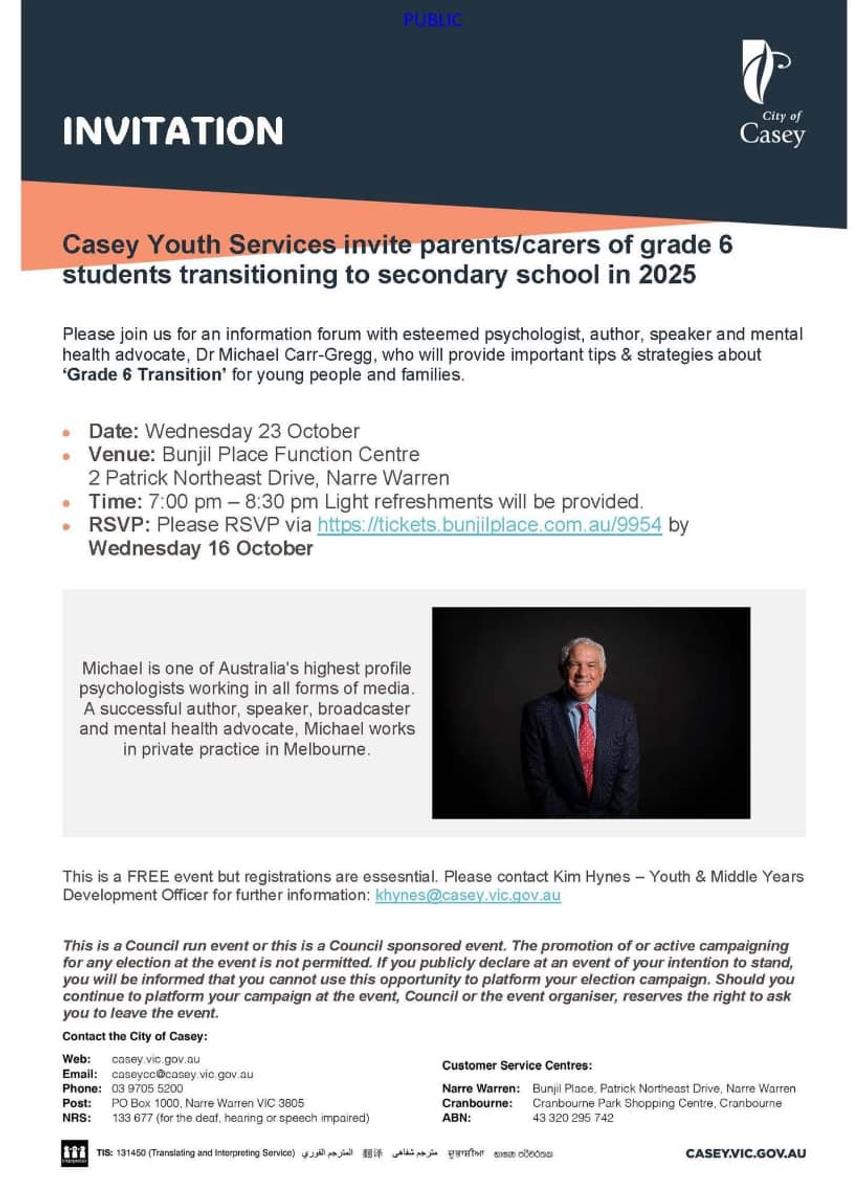Health & Wellbeing
Healthy Body ~ Healthy Brain

Health & Wellbeing
Healthy Body ~ Healthy Brain


Whooping cough cases are continuing to increase across Victoria, particularly among school-aged children. Whooping cough is a very contagious infection, mostly spread through coughing or sneezing.
Symptoms include:
· Blocked or runny nose
· Tiredness
· Mild fever
· Severe bouts of coughing, often followed by a ‘whooping’ sound on breathing.
Whooping cough can lead to life-threatening infections in babies.
If your child is unwell, they should not attend school. Please see a doctor if you or your child develops whooping cough symptoms. Early diagnosis and treatment will help reduce the spread of the infection.
Students diagnosed with whooping cough must not attend school.
If your child is diagnosed with whooping cough, they must not attend school for 21 days after the onset of the cough, or until they have received 5 days of antibiotic treatment. You must notify the school if your child is diagnosed with whooping cough. To further reduce the spread of infection to your child and the school community, the Public Health and Wellbeing Regulations 2019 require that some students who were in the same classroom as a student diagnosed with whooping cough should not attend school.
Your child should not attend school for 14 days after they were last exposed to a person diagnosed with whooping cough, or until they have taken 5 days of a course of antibiotic treatment if they are:
· Aged less than 7 years; and
· Not fully vaccinated with 3 doses of whooping cough (pertussis) vaccine.
This exclusion is required by law – refer to the School exclusion table for primary schools and children’s services. School Exclusion Table for primary schools and Children's services | health.vic.gov.au
If your child is diagnosed with whooping cough, please contact the school to let us know.
More information
For more information about whooping cough, refer to Whooping cough on the Better Health Channel. Whooping cough (Pertussis) - Better Health Channel
Vaccination is the best way to reduce the risk of whooping cough. The Department of Health recommends staying up to date with immunisations, including booster doses. A free booster dose of the pertussis vaccine is covered under the national immunisation program for students aged 12 to 13. If you are unsure about your child’s vaccination status for whooping cough, please discuss it with an immunisation provider, such as your doctor.
I really appreciate your support in keeping our students safe and well.






Mental Health changes over time in response to different stresses and experiences. There are many factors, both internal and external, that affect where someone generally sits on the mental health continuum, and also where they sit at any given point in time.
Remember to reach out to your support networks if unexpected thoughts or feelings arise. Professional support is always available when you need it.




The NDIS provides funding to eligible people with disability to gain more time with family and friends, greater independence, access to new skills, jobs, or volunteering in their community, and an improved quality of life.
The NDIS also connects anyone with a disability to services in their community.
This includes connections to doctors, community groups, sporting clubs, support groups, libraries and schools, as well as providing information about what support is provided by each state and territory government.
The NDIS now supports over 500,000 Australians with disability to access the services and support they need.
This includes supporting approximately 80,000 children with developmental delay, ensuring they receive support early so that they achieve the best outcomes throughout their lives.
How to apply for NDIS Funding
If you would like to make a suggestion on what you would like included in the Health and Wellbeing page, please email using the link here ...